Structural & Acoustics Blog Posts
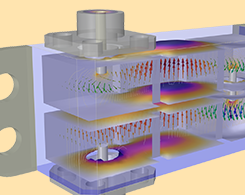
Designing Cavity Filters for 5G Devices with Multiphysics Modeling
From radar and microwave ovens to particle accelerators, RF cavity filters are found in a variety of different application areas. Among them: 5G devices and infrastructure.
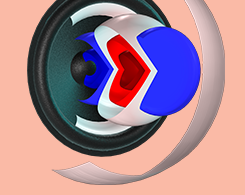
6 Examples of Simulation-Driven Loudspeaker Development
From headphones for virtual reality gaming to powerful transducers for hearing aids, here are 6 examples of multiphysics simulation being used to develop new and improved loudspeaker products.
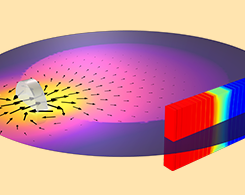
How to Model a Hall Effect Sensor with COMSOL Multiphysics®
Basic working principle of a Hall effect sensor: A nearby magnetic field deflects the path of current through a semiconductive sensor, which causes a measurable change in potential.
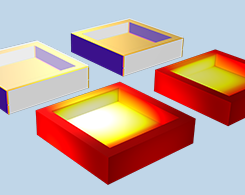
Which Radiation Interface Should I Use for My Heat Transfer Model?
Compared to the mechanisms of heat transfer by conduction and convection, heat transfer by radiation has unique characteristics. How should you account for radiation in your heat transfer models?
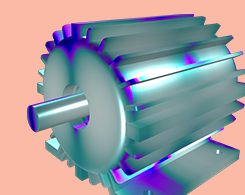
A Quiet Revolution: Analyzing Electric Motor Noise via Simulation
The sound we hear from electric-powered machines is a multiphysics phenomenon: A motor’s electromagnetic activity sends vibrations through both the machine and the surrounding air.
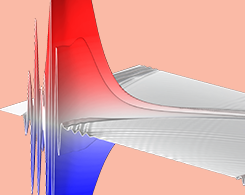
Analyzing HIFU Propagation Through a Tissue Phantom
High-intensity focused ultrasound (HIFU) is used for surgery, cancer therapy, shock wave lithotripsy, and more. Learn about how simulation can be used to analyze this noninvasive technique.
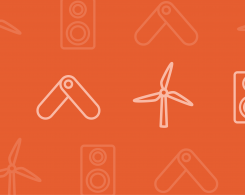
Modeling Thermomechanical Fatigue in COMSOL Multiphysics®
You can analyze thermomechanical fatigue in COMSOL Multiphysics® using experimental data from fatigue testing and material parameters from literature. A guest blogger demonstrates…
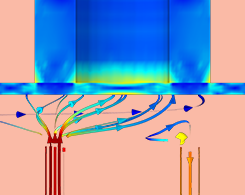
How to Simulate a Piezoelectric Micropump
Learn how to combine piezoelectric materials with fluid-structure interaction effects, use a velocity-dependent formula, and set up disconnected mesh between the solid and fluid domains.



